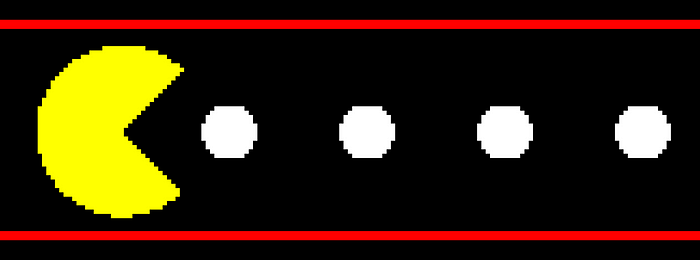
A term I think most everyone should familiarize themselves with, the meta analysis of ranges of skill for a particular video game.
Skill floor
I’ve mentioned it briefly before, but I wanted to give a quick summary on what a skill ceiling and skill floor are.
Skill floors, to start, are the bare minimum amount of skill with that game (or sub-category within the game, see class shooters ala TF2) to participate in the game effectively. This is the status quo that the developers have modeled the game around, and if you’re not good enough to meet this floor you’re going to have a hard time. This is the developers saying “you must be this tall to ride this ride.”
The skill floor is the skill-gate to the game, the barrier to entry. It’s not that you can’t play the game under this skill floor, but you’ll probably be unusually frustrated as the developers intended you to effortlessly be able to participate in a way that is clearly not-so-effortless for you.
Skill ceiling
Skill ceilings are the limit (or lack thereof) on how good you can get at the game given enough practice. With all the time in the world how much is there to learn and master? How much advantage does that time and effort in practice give you?
Have you watched pro players on new accounts just devastate an enemy team of new players? That, though a dick move, showcases the game’s skill ceiling. Have you ever watched a professional Starcraft player’s Actions Per Minute (APM) reach the hundreds? Have you ever poured enough of your free time into a game that a player on the other team insists you’re cheating? These are all symptoms of a game with a high skill ceiling.

The Extremes
A low skill floor means it is an easy game to get a grip on. A high skill floor means you probably should expect to either have a hard time as you learn how to play. Maybe try to play other easier games first to get a handle on the mechanics of this genre of game.
A low skill ceiling means that despite putting a lot of time into the game you’re only marginally better than those who are average. There isn’t much incentive to go from good to great. A high skill ceiling means that there is a clear difference between the run-of-the-mill player and those that dedicate large chunks of their life to this particular section of the video game medium.
The Range, high skill floor
A high skill floor and a low skill ceiling is the worst possible set of these attributes. The game is difficult to play or learn, and putting extra time into it yields little extra performance. There are few reasons for a hardcore gamer obsessed with competition (of which there are quite a few, and their money is as good as anyone else’s) will start or continue playing.
A high skill floor and a high skill ceiling is not nearly as bad as the previous example, but probably will have a harder time making money. There are numerous reasons a developer might choose this set on purpose. Perhaps they want the game to be well known for only involving the most dedicated of skilled players. Perhaps they want to actively push away those that would punish their teammates due to a strong reliance on proper teamwork and individual performance. I can’t speak to to pros and cons of this, except that it seems obvious to me that selling to fewer people will make less money. A hard game isn’t always a fun game, despite what you think a game should be it is the fun games that sell the best.
The Range, low skill floor
A low skill floor and a low skill ceiling is where casual games and arcade games lie. Arcade games are the best example, they’re made to be just fun enough to play, and easy enough that even a child could enjoy them. With the low skill ceiling the hardcore dedicated players have little reason to stick around. Unless, of course, they happen to find it fun enough regardless of not being that much better than the inexperienced players.
Really hardcore players will learn in advance of the low skill ceiling and never buy the game to begin with. These games will certainly still make money, though, and that’s why we see more of this kind than of the previous. A lower skill floor means a wider audience which means more copies sold and more money for the studio and publisher.
Porridge just right
The game everyone seeks to make, but that requires the most effort on the development studio’s part, is the low skill floor and high skill ceiling.
The barrier to entry is low, anyone can play this game and get enjoyment out of it. It sells plenty of copies, which fund the development and encourage studios and publishers that these kinds of games are worthwhile.
Meanwhile, with a high skill ceiling those players that choose to throw their life into it can display to the world that decision. They can stomp on those taking advantage of the low skill floor (not that those people will mind, the punishment in such games for getting stomped on won’t be very frustrating, as that is part of the skill floor).

By Example
Overwatch is a great example of this. A child could, in theory, go into a custom game where people are just goofing around and have fun. If a pro comes in and mops up the place then there’s not much penalty, you respawn in, what, about 6 seconds?
There’s no permanent loss of something gained. Dieing doesn’t penalize you with some in-game currency. A lootbox isn’t taken away because that pro player decided to play Widowmaker and 1-shot you from across the map. In the worst case scenario you can simply find a new game and be playing and having fun again in a few minutes. Each kind of player gets out of the game as much as they put in, which sells to the largest possible audience, and drives the most rave of reviews.
Pool (or billiards) is another example, and not even a video game. Anybody can have some fun knocking some pool ball around. Novice players will fair little better than chance, while pros will regularly sink exactly the balls they need. As long as you’re not paying for money the novice player has no reason to be frustrated. If you just just started playing, well you know you’re not going to be any good. It does help however, to watch the pro and realize how good you can get with time and practice.
